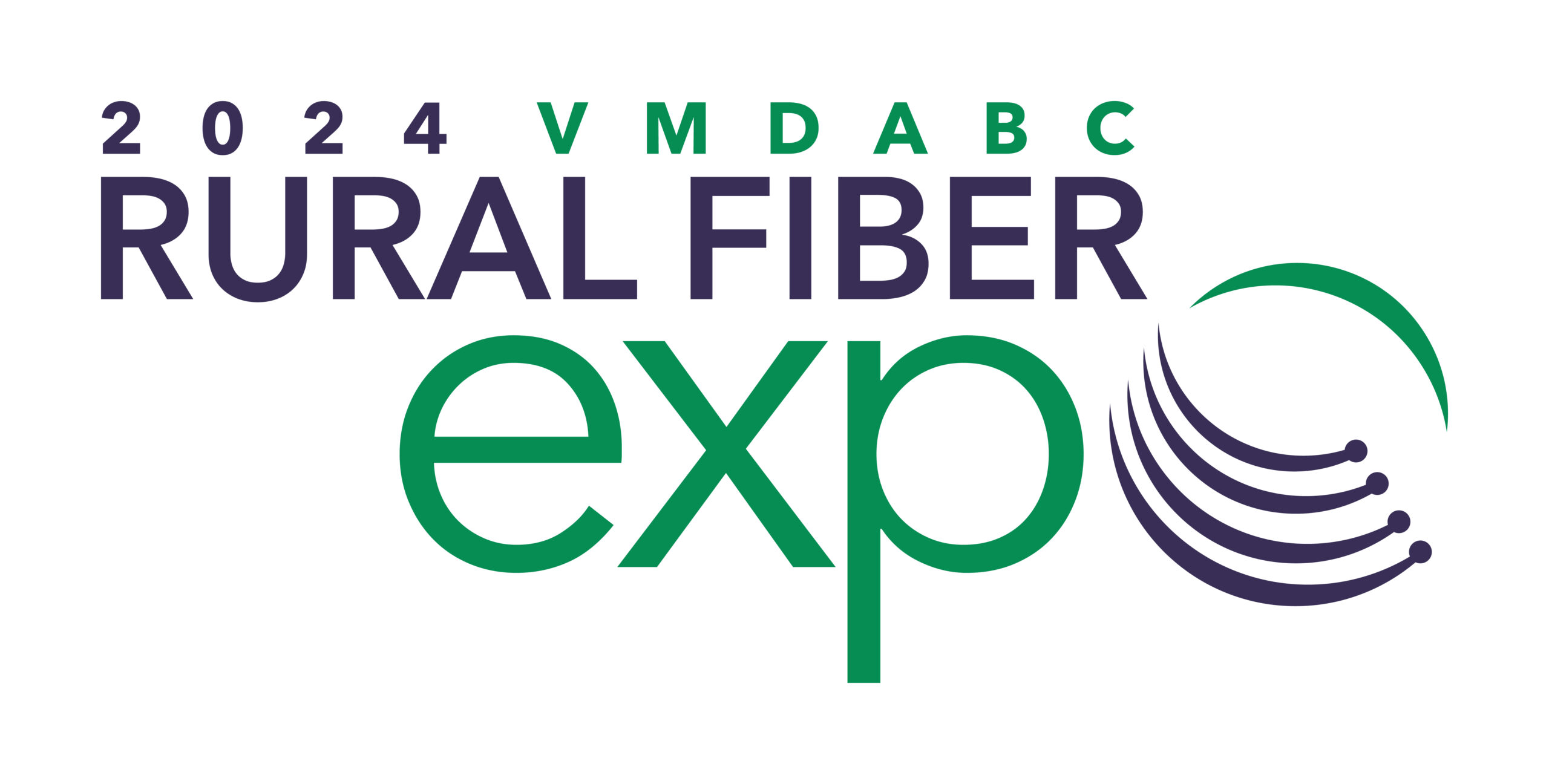The Virginia, Maryland, and Delaware Association of Broadband Cooperatives (VMDABC) came together to detail progress in the mid-Atlantic’s broadband connectivity and preview plans for the year ahead.
After a successful year of working to close the broadband connectivity gap through the mid-Atlantic region, the Virginia, Maryland, and Delaware Association of Broadband Cooperatives (VMDABC) hosted its fourth annual Rural Fiber Expo in Annapolis, Maryland. The expo previewed the path forward for rural broadband connectivity efforts throughout the region.
At the Rural Fiber Expo, the CEOs of the member broadband cooperatives spoke about the challenges to the deployment of broadband in rural areas and the innovative solutions employed to to overcome these challenges. The group looked to the past, present, and future to see what broadband expansion has and will look like in the Mid-Atlantic region.
VMDABC was founded to address the need for a singular, unifying voice for cooperative affiliate broadband interests. VMDABC is committed to fostering ongoing collaboration between industry partners while serving as the preeminent voice on rural broadband policy before policymakers at all levels of government in the region.
See excerpts and quotes below from the “CEO State of the Union Broadband Address”
Casey Logan, VMDABC Chair and CEO of Empower Broadband, spoke about completing VATI projects and the service aspect of rural broadband work: “We are excited to finish up our 2022 VATI project next year in 2025. Lot of money went out, it’s a $150 million project that Empower was involved with, with our local counties and governments. Our connection empowers…we sell service. We don’t sell kilowatt hours. We don’t sell ones and zeros going through a piece of fiber. We provide service to our communities. That’s going to push us over and keep our business models more successful.”
Bee Online Advantage CEO Jeff Ahearn spoke about the transformational impact that broadband buildout has had in Roanoke County: “We’ve passed a little over 500 homes…in this project…this area had non-existent broadband service [before we got there]. Their phone service was subpar and would go down after every rainstorm…folks there now have high-quality voice over IP phone service and broadband speeds up to a gigabit symmetrical.”
“We’ve noticed opportunities with broadband and telephone service [for] educating our members. We have a high demographic where members’ computers are outdated. They’ve never done streaming services. They’ve never hooked up an Xbox. Little things like that consume a lot of time, and we are starting to add on the services of having that tech support available to our membership, including cybersecurity. We all know that it doesn’t take very long for somebody to peek into your computer when you connect them to the internet. Adding these extra services that our membership may not understand is necessary to protect themselves in this day and time.”
Christopher Botulinski, COO of BARC Connects, spoke about how they connected their first customer through the Line Extension Customer Assistance Program (LECAP), a program designed to support the extension of existing broadband networks for lower-income areas: “Every time you build a mainline, your take rate drops significantly. So, we’re finally creeped back over 40% on our take rate, and we’re looking to build more every day. Some of our success stories recently: we were successful with Rockbridge County in partnership in this most recent round of VATI, that we’ll see another probably 300-400 homes passed that are in the areas that once had no options. So that’s something we’re really looking forward to.”
“And of the big things that we more recently accomplished…connecting our first customer through the LECAP process. We approved it, we installed it, hooked them up, and now they’re getting service there from a 2,000-foot drop in Augusta County.”
Gary Wood, CEO of Firefly, spoke about the impact that rural broadband is having on their members in Nelson County: “If you want to look at one community we have 98% fiber coverage in Nelson County – one of the most rural counties. If you want service today and don’t have it, across the territories within Nelson County, you will have connection within 10 days. And that has changed the community. It’s changed the value of their homes. It’s changed their ability to do things as a community. It’s changed the people who live there. They have Google and Amazon employees now. It’s a stronger community overall, in multiple ways, for having that connectivity. They’re probably one of the best connective counties in the nation and they’re very quiet about it.”
Mike Malandro, CEO of Choptank Fiber, spoke on services beyond broadband and funding for programs in schools and keeping people in their communities: “Well, let me just talk about what’s on the horizon: we are starting to offer more ancillary services inside of what beyond the broadband can do, like protecting your kids online. Those sort of things that we can offer are value-added. We are trying to be more than a co-op. We’re trying to be the best provider in the community.”
“I want to think about the community and how we can improve it. I would love to get some extra funding to create programs inside of schools, for network engineers and people that work on these systems. That way, we can educate these young people and keep them in our communities. It’s beneficial to our communities and our local economies.”
Sarat Yellepeddi, CEO of RURALBAND Fiber Internet, spoke about their milestones: “RURALBAND connected their 5000th member this month. That’s a big accomplishment… [especially considering our] having a smaller footprint. We only [have] 30,000 members. We are at a 40% to 45% take rate, and hopefully, we will get into O and M [Operations and Maintenance] in 2026, so we’ll be wrapping up all major projects in our footprint.”


